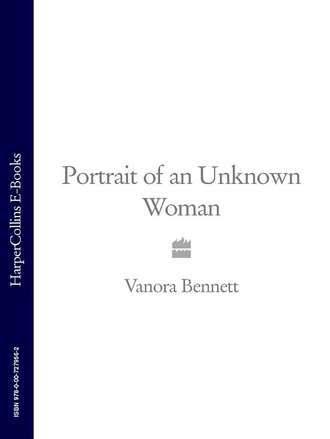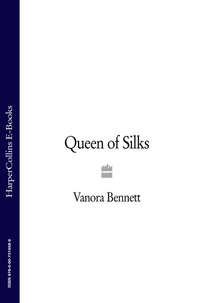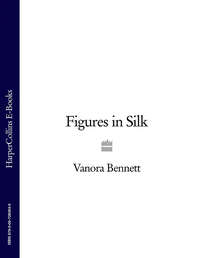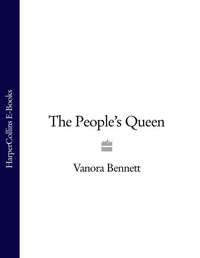
Полная версия
Portrait of an Unknown Woman
The Queen’s first marriage has only begun troubling the King’s conscience since he has begun to want a second marriage for himself. It didn’t need to trouble anyone’s conscience back when it happened, because back then the Pope formally pronounced that the first unconsummated marriage of children hadn’t counted as God’s holy union. But now the King is full of doubts. As he dances attendance on the scented girl with the pointy chin and the witchy eyes and the fascinating mole on her neck, he’s also wondering: is God punishing him for his sinful marriage by denying him a son?
Queen Catherine; devout, learned, Spanish, and in her forties, with powerful friends at court and all round Europe but just one young daughter to show for twenty years in the King’s bed. And worried.
And a clique of ambitious nobodies forming around her rival: pretty, witty, elegant Anne Boleyn. The kind of courtiers known collectively as a ‘threat’. They’re throwing her together with the King; parting the tapestries with a wink and a glitter of excitement.
‘I was with the court at New Year at Hampton Court, and I saw them together myself,’ John said sombrely. ‘They were in a group of maskers. But there was no disguising the King. And no disguising what he felt about the lady in yellow.’
‘But what does the lady in yellow have to do with us?’ I asked.
‘Don’t be impatient, Meg,’ he said. ‘This is the point. The lady in yellow is making your father’s battle against heresy many times more dangerous. She has the King’s ear – and she’s flirting with the heretics too. At a time when the King’s of a mind to be interested in anything that undermines the Queen, the Church of Rome and the Pope, she’s poisoning him in the most subversive way imaginable by giving him the new men’s books to read.
‘If her influence grows, who knows how far the heretical thinking might spread? And who knows what chaos we might be plunged into? Peace is an illusion, an agreement between civilised people, and something your father has worked all his life to promote; but it’s the nature of humanity that the beast is always lurking somewhere beneath the surface.’
The phrases were echoing emptily in my head now. I pleated a fold of my cloak. I didn’t understand. ‘You’re talking politics,’ I said sulkily. ‘Not ordinary life. Not us being in love and getting married.’
‘But Meg, politics is life. If you lose peace you lose everything else: love, marriage, children, the lot. You should thank God you’re too young to remember how things were before – in the time of wars,’ he answered bleakly. ‘But anyone a bit older than you will say what I’m saying now. I lost my family in that madness’ – he shivered – ‘and I know there can be nothing worse.’
Had he? He was old enough to have lost family in the wars, but he’d never talked about it. All I knew for sure was that he’d been taken into a family friend’s household as a boy, after his own father’s death. I’d asked him about his childhood once. He’d just shaken his head and twinkled at me. ‘Very different from the way I live now,’ was all he’d said. ‘I like this way of life a lot better.’
‘The best we can do, in the weeks and months to come,’ his voice rolled on now, ‘is to hope that the King’s fancy turns elsewhere and this crisis passes. And meanwhile, try not to judge your father too harshly. Some of the things he’s doing may look cruel, but it’s up to him to root up the evil spreading over English soil before it starts clinging to the King. The only thing we can do is let him concentrate on doing his job, and wait for the moment to be right for us.’
He swung me round in front of him like a doll, lifted my face, and looked searchingly into my eyes. ‘Oh Meg, don’t look so scared. Have faith. It’s going to happen. I’m going to marry you. I only wish,’ he added, leaning down and kissing the top of my head, very gently, ‘that it could be today.’
I stayed very still, looking down, treasuring this moment of quiet togetherness, warmed by the sincerity in his voice and the folds of his cloak flapping in the rising wind, watching the shadow of the anxious clouds scudding through the deepening sky chase across the lawn at my feet. Still hardly able to believe that he could be here, saying he felt about me as I always had about him, still swimming with delight. And feeling half-reassured that he didn’t think Father was becoming a vengeful, sadistic stranger, though not sure I completely agreed. Still feeling twinges of unease and uncertainty; but willing, more than willing, to do whatever John Clement said, because he said he loved me and because I loved him.
‘You said,’ I whispered, with my face so close to his chest that I could smell the warm man-smell of him, trying to focus on the questions I needed answers to but not sure any more what they were, ‘that there were things Father wanted you to be able to tell me … was that just about the College of Physicians? Or was there something else?’
He hesitated. For a moment I thought I saw his eyes flicker, as if there was something he wanted to hide. But then he smiled and shook his head. ‘No. Nothing else,’ he said firmly. ‘Nothing for you to worry about.’
We huddled together, looking up at the house, knowing it was time to go back. I knew I should feel nothing but joy, but this snatched meeting was so unexpected, and so incomplete, that my pleasure in it was bittersweet too, and tinged with sadness. So what I found myself saying, as we turned back up the path, arm in arm, was, ‘You know, I miss the innocence of before … the time when there was nothing more to worry about than putting on a play that made us laugh after supper … when there was nothing worse than a weasel in the garden … when Father did nothing more dangerous than hearing court cases about ordinary street crimes … and when everything he wrote was just a clever game, instead of a war of words …’
‘My darling girl, I think what you’re saying is that you miss Utopia,’ John quipped, and I thought for a moment that he might be laughing at me. That was the title of Father’s most famous book, written in the summer that John went away, in which a fictional version of my teacher – known in the book as ‘my boy John Clement’ – had been given a minor role. It was the story of a perfect world, as perfect in its way as our own contented past.
I didn’t feel like laughing back. ‘Well, I do miss it,’ I said defiantly. ‘Who wouldn’t?’
But the wind had got into his cloak, and was tugging at his beard, and he was very busily fidgeting his accoutrements back into submission.
‘Let’s go,’ he said, as if he hadn’t heard, stepping ahead of me, ‘before we get blown away.’
But he had heard, after all, because a few steps later he added, rather bleakly, over his shoulder: ‘Nostalgia is dangerous. Never look back.’
Or perhaps I’d imagined the chill, because by the time we got up to the door and stopped to catch our breath, now we were out of the wind, he was smiling again, and his face was as softly radiant as I could have hoped. He smoothed down the hair escaping out of my cap, and touched a finger to my lips.
We might have lingered for longer on the threshold, glowing with wind and love. But suddenly the sound of two lutes in duet began drifting out into the late afternoon: invisible fingers plucking, hesitantly and very slowly, at a bittersweet popular air.
‘Listen!’ he said, with a music-lover’s delight, pushing open the door to hear where the sound was coming from. I didn’t need to rush. I knew exactly what a mangled lute duet signified in our house in Chelsea. Father was home.
4
The hall was crowded with new arrivals. But one head stood out among the rest – that great dark lion’s head, with the square jaw and long nose and the piercing eyes that could see the secrets in your soul, the head of the man with the glorious glow about him that fixed every other pair of eyes on him wherever he went. When Father threw back his head and laughed – as he often did – he always transported whatever roomful of watchers he’d gathered around him into a quite unexpected state of pure, joyful merriment. He wasn’t exactly laughing now, as I slipped into the room behind John Clement. He and Dame Alice were sitting on two high-backed chairs, surrounded by a standing crowd of soft-faced admirers with stars in their eyes, and the pair of them were struggling to make their disobedient lutes obey them (he’s always been tone deaf, but he loves the idea of playing duets with his wife). But there was a smile playing on his wide mouth as he tried to force his fingers to be nimble on their strings. He knew his limitations. He was ready to see the lute duets, like so much else, as the beginning of a joke about human frailty.
His magic worked as powerfully on me as it did on everyone else. Glancing around past all the usual family faces and the stolid features of Master Hans, I saw he’d brought the Rastells and the Heywoods home with him, and John Harris, his bow-backed confidential clerk, and Henry Pattinson, his fool, fat and shambling behind them, and in the shadows John a Wood, his personal servant, who was probably tutting adoringly in his corner over the state of the master’s muddy old shoes, sticking out beneath his robe, and plotting one of the sartorial improvements that Father loves to resist. The sight of Father emptied my mind of all my rebellious thoughts. With him here, the household was complete. The dusky room was lit up with more than candles. The warmth came from more than just the fire blazing in the grate. Like everyone else, I was ready to forget everything and just revel in the effortless happiness that came from enjoying watching him enjoying himself.
Until, that is, I sensed a shiver run down the back of the man in front of me. From where I was standing, I couldn’t see John’s expression. But, with sudden protective anxiety, I became aware of Father glancing up from the frets under his left hand and, for the first time, taking in the bearded face of his uninvited guest.
Father didn’t miss a beat. With his hand still moving on the fingerboard, he held John’s gaze for a moment, inclined his head in the merest sketch of a courtly bow, and murmured, in his softest voice, ‘John.’ The smile stayed on his lips.
Then he turned his eyes down, back to his difficult music.
It had been no more than a greeting. But I felt John flinch as if it had been a whiplash. He was shifting uneasily on his feet now, glancing back at the door, clearly longing to be off.
After the music finally dissolved into applause, Father got up with the lute still in his hand. I was certain he was about to make his way towards us. I stepped aside, stealing a glance up at John’s face and reading the pale signs of guilt on it.
Yet Father didn’t part the crowd of acolytes to approach John. He had too much of a sense of occasion. He was turning now to the delighted Master Hans, and apologising for the poor musical entertainment – ‘But I assure you something better will follow,’ he was saying, and John Rastell, my uncle the printer, and his son-in-law John Heywood, were visibly quivering with secret knowledge of what that would be – and within minutes we were being organised into the impromptu performance of a play, and transported back into the carefree atmosphere of a family evening in the old days.
‘Let’s do The Play called the four PP!’ young John More, excited and puppyish, was calling out. John Heywood’s play, written long after John Clement went away, had been a family favourite for years – a satire on the trade in false relics by mendacious travelling monks. Young John was waving his goblet of Canary wine, and his grin was almost splitting the child’s face, which now seemed far too small for his ever-growing body. ‘We could use this as the wedding cup of Adam and Eve! … And this’, he picked up a trinket box, loving the joke, ‘as the great toe of the Trinity!’ But the older Johns shushed him. They’d clearly agreed in advance what we’d be acting – and opted for no religion – because it was only a matter of moments before everyone was dressing up instead for The Twelve Merry Jests of Widow Edith, with Dame Alice assigned, with her usual good-tempered resignation, to play the starring role of the bawdy old fraud who debauches our family servants. ‘If this is a punishment for all my shrewishness,’ she said, and twinkled, ‘I should learn to keep quiet in future,’; then, twinkling even harder and tapping Father on the shoulder in the middle of his mock-henpecked look: ‘Just my little joke, husband.’
It was only when the shuffling and scene-setting was in full swing, and all the other Johns were fully occupied elsewhere, that Father finally approached my John. Who was still standing, looking ill at ease, while everyone else bumped busily past him.
‘John,’ Father said, opening his arms, dazzling the taller man with his smile. ‘What a surprise to see you here. Welcome to our poor new home,’ and he embraced his bewildered protégé before slowly moving back, patting him gently on the back, to include me in his smile.
‘John Clement,’ he said to me, with a hint of mockery in his voice as he pronounced that name, ‘has always been a man of surprises. Ever since the time we first met. Do you remember our first meeting, John?’
And a current of something I couldn’t define ran between them – what seemed a sense of threat masked by smiles – though perhaps I imagined it. John was smiling back, but I sensed he was hanging intently on Father’s every word. So was I. I knew so little about John’s past that any new light Father could shed on who my enigmatic intended had been before he came to live with us would be well worth having.
‘It was in Archbishop Morton’s house, Meg, when I was just a boy – maybe twelve years old. You’ve heard all about Archbishop Morton, I know: my first master, and one of the greatest men it’s ever been my privilege to serve. A man whose great experience of the world made him both politic and wise. God rest his soul.’ I was being drawn closer, into the magic circle. His voice – the mellifluous tool of his lawyer’s trade – was dropping now, drawing us into his story.
Father, a pageboy in hose and fur-trimmed doublet, turning back the sheets and fluffing up the pillows late at night for the Archbishop, who’d also been Lord Chancellor to the old King, in his sanctum in the redbrick western tower of Lambeth Palace. Father was a boy tired after the daytime rituals of the house school, and the evening rituals of serving at table in the great hall, and already longing to join the other pageboys snuffling on their straw mattresses in the dormitory. But he was mindful too of the lessons of the books of courtesy and nurture, so he was also remembering not to lean against the wall, or cough, or spit, and to bow when he was spoken to, and to answer softly and cheerfully. (The boy More was so naturally skilled at all these arts of gentility that he’d become a favourite with his canny master, who’d taken to boasting publicly at table that ‘This boy waiting on you now, whoever shall live to see it, will prove a marvellous man.’) So when the Archbishop told him to take the tray of wine and meat and bread he’d brought up from the kitchens into the audience chamber next door – a public room of polished oak, never used at this hour – he stifled his fatigue and obeyed with the best grace he could.
And there in the audience room were two young men – coltish youths only slightly older than young More, with long limbs and travel-stained clothes, and swords propped against their boxes, drooping tiredly on the polished benches. With something watchful about the way they looked at him as he entered with the tray. And something angry about the way they looked at each other.
Try as he might, young More couldn’t imagine who these surprise guests were. He’d never seen them at the school. He’d never seen them among the pages serving in the great hall. Besides, they were too old to be pageboys. They already had the close-cropped hair of adulthood. And former pageboys didn’t suddenly show up to pay their respects in the middle of the night. In any case, their manners seemed too high-handed to have been learned in the Archbishop’s courtly home. ‘Wine,’ the older youth, who must have been seventeen or eighteen, said imperiously. Young More bowed and poured out the wine. ‘Wine,’ said the younger boy, who was black-haired with fierce eyes, clearly annoyed that there was only one goblet and pointing towards his own feet as though young More were a dog to be brought to heel.
But the boy More was not afraid of these headstrong youths. He just laughed politely.
‘Two drinkers, but only one vessel,’ he said, keeping his countenance as the books taught. ‘A problem I can quickly solve by running back to the kitchens for another goblet.’
And then an interruption – a great gale of laughter from the candlelit doorway, where they’d all forgotten that Morton, in his long linen nightshirt, was still watching them.
‘Bravo, young Thomas,’ he said richly. ‘Your poise puts everyone else here to shame. This one,’ and he pointed at the younger youth, who was now looking ashamed at being caught out in the uncouth business of bullying a child, ‘has clearly forgotten to live up to his name.’
And the black-haired wild boy stared awkwardly at his feet.
‘Tell the child your name, John,’ Morton said. ‘Let him in on the joke.’
‘Johannes,’ the youth said. He hesitated, in the manner of someone who might not really speak Latin. ‘Johannes Clemens.’
Johnny the Kind. Archbishop Morton catching young More’s eye, giving him permission to laugh. The small More joining in his master’s unkind mirth at the difference between the tall black-haired boy’s lovely name and unlovely behaviour. The older youth also beginning to guffaw. And, finally, John Clement himself – somewhat to More’s surprise – losing his sullen look, clapping the young More on the back, and, with more grace than the pageboy would have expected, joining in the laughter at his own expense.
‘… I liked that in him. We’ve been the best of friends since,’ Father ended, superbly relaxed. He was talking to me rather than to John, but I felt John also gradually relax as the story drew to its close, in a way that made me wonder if he’d perhaps been dreading a different ending – one that might discredit him in some way. ‘But I see you’re still a man of impulse, John. Turning up without warning.’ Father winked affably at me, encouraging me to laugh a little at the embarrassed figure between us. ‘Still reserving your right to surprise.’
‘So where had you come from that night?’ I asked the mute John, curious to see further into this glimpse of his past. ‘And where were you going?’
‘Oh,’ Father said smoothly, answering for John. ‘Well, that was so soon after the wars that things everywhere were still in confusion. John and his brother had been brought up by family friends after their own father died. But it was time for John to go to university. So he was stopping in London on his way abroad, to Louvain, where he was about to become the man of learning – the kindhearted man of learning’ – he chuckled again – ‘that everyone in our family has always loved so dearly.’
And now Elizabeth was joining our circle, breaking the conversation. ‘Won’t you play one of the servants, John?’ she was asking sweetly, and, before the pink-faced John could answer, wrapping him gently in a rough servant’s cloak and shepherding him away to join in the revels. He looked back at Father, as if asking a question; and Father, as if answering, nodded what might be permission for him to stay and play.
Left alone with me, Father turned a kindly gaze on my face. ‘You see how it is, Meg,’ he said. ‘I made a promise to the Archbishop long ago to keep an eye on John Clement. And I always will. I may always need to. He’s someone who’s endured a lot of losses in his life; and sometimes suffering leaves its mark on a man’s soul. With a man like that you have to take things slowly and carefully – and make sure there are no hidden depths you haven’t plumbed. But you’re a wise young woman. I’m sure you understand that …’
He held my gaze a moment longer than necessary. I didn’t know exactly what he meant, though the gentleness on his face now reminded me of the gentleness with which he’d treated Will Roper’s heresy. But I thought Father might be giving me a warning.
‘We had a good talk this afternoon,’ I said, masking my resentment behind a diplomatic smile of my own. Father was a fine one to talk about hidden depths, if he’d been secretly negotiating with John Clement for years about the conditions under which John might marry me, without ever giving me a hint of what was on his mind. ‘I was glad to see him after so long. I was glad to find out everything he told me.’
And I was pleased to see Father look more closely still at me, carefully now, with what seemed to be a question in his eyes. I held his gaze. It was he who turned his eyes away. ‘Good,’ he said, but without certainty; and he moved off into the crowd to attend to his guests.
And so the rest of the entertainment, with all its applause and rumbustious punch lines and flamboyance and laughter, was reduced for me to a watchfulness of eyes. John Clement’s eyes, avoiding mine and Elizabeth’s and Father’s alike. Elizabeth’s eyes, searching my face and John Clement’s with something I couldn’t read in her expression. Father’s eyes, coming thoughtfully to rest every now and then on John Clement. And, of course, Master Hans’s eyes, giving us all the same long, careful, considering looks I’d seen him direct John Clement’s way over dinner. A gaze that mapped the line of the back and the line of the heart at the same time. Which made me uncomfortable when I caught him staring for a slow moment at my hands moving in my lap. But which I then realised, with relief, probably signified nothing more than his artist’s pre-occupation with how best to paint us.
John Clement didn’t stay late. I saw him slip up to Father as soon as the play was over, while the costumes were still going back into their chests and the servants were setting out the supper, ready to make his excuses and go. I moved closer, wanting to hear but not to interrupt. But Father gestured me into the circle.
‘John tells me he has to leave now,’ Father said, with equal measures of warmth and splendid finality. ‘It’s been a joy that he’s found the time to let us welcome him here so soon after his return to London. And we’ll look forward to seeing him again here very soon, won’t we, Meg?’ He paused, and gave John another glance I didn’t understand, before adding: ‘As soon as he has had time to find his feet again in this country, after so long away. As soon as he wins election to the College of Physicians.’
I took John out to the doorway to help him into his cloak. Out in the half-darkness, with none of the other eyes on us any more, was the first time I dared look up and meet his eyes at last. And he looked straight back at me for the first time in what seemed like hours, with all the sweetness and love on his face that I could have hoped for, and with a hint of what looked like relief too.
‘You see, Meg,’ he said reassuringly, with one hand on the doorknob. ‘It’s as I said. We just have to wait a while. Doctor Butts promises that I’ll be put up for election this spring – it seems a long time, but it won’t be forever – and then everything will come right for us.’ And I felt his other arm move round my waist in farewell. ‘I’ll write,’ he murmured, opening the door and letting in the night wind. ‘I’ll be back. Soon. I promise you.’
And then he was nothing but a black figure on the black of the garden, flapping away down the path towards the water, leaving me confused but as hopeful as the silliest of serving girls that I was about to live happily ever after.
Elizabeth sidled up and looked sideways at me as soon as I slipped back in.
‘Master Hans has been making sheep’s eyes at you all evening,’ she said, with one of her brittle little laughs. ‘I think you’ve made a conquest.’






